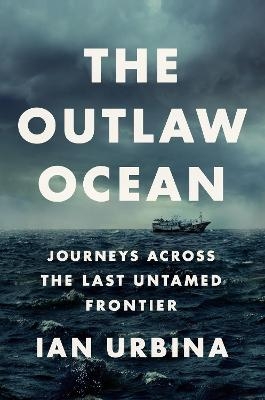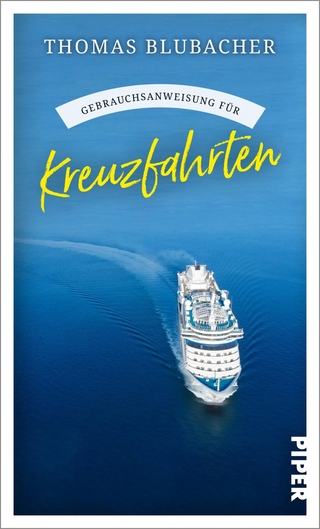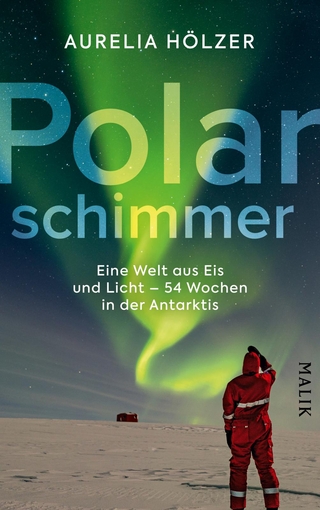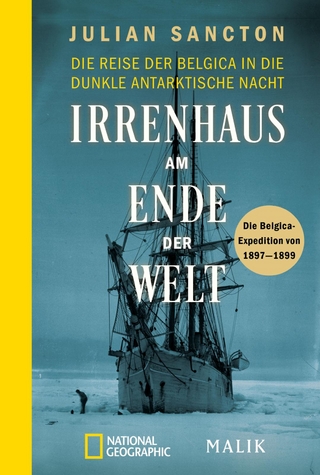
The Outlaw Ocean
Alfred A. Knopf (Verlag)
978-1-5247-1164-1 (ISBN)
- Titel ist leider vergriffen;
keine Neuauflage - Artikel merken
There are few remaining frontiers on our planet. But perhaps the wildest, and least understood, are the world's oceans: too big to police, and with no clear international authority, the oceans have become the setting for rampant criminality--from human trafficking and slavery to environmental crimes and piracy. Now, in The Outlaw Ocean, Ian Urbina--prize-winning reporter for The New York Times--gives us a galvanizing account of the several years he spent exploring and investigating the high seas, the industries that make use of it, and the people who make their--often criminal--living on it. He traveled on fishing boats and freighters, visited port towns and hidden outposts. He witnessed both environmental vigilantes and transgressors in action, and faced a near-mutiny aboard a police ship conveying him to a meeting point miles from the coast. He describes pursuing employment agencies and shipowners to hold them accountable for labor abuses, and traveling with a maritime repo man. Combining high drama, an investigative reporter's eye for detail, and a commitment to social justice, The Outlaw Ocean is both a gripping adventure story and a stunning exposé of some of the most disturbing realities that lie behind fishing, shipping, and, by turn, the entire global economy.
IAN URBINA is the director of the Outlaw Ocean Project and an investigative reporter who writes regularly for The New York Times, The Atlantic, National Geographic and other venues. He has won a Pulitzer Prize for Breaking News and a George Polk Award for Foreign Reporting. Several of his stories have been developed into major feature films and one was nominated for an Emmy Award. He has degrees in history and cultural anthropology from Georgetown University and the University of Chicago. Before being on staff at the Times for nearly two decades, he wrote about the Middle East and Africa for various outlets, including the Los Angeles Times, Vanity Fair, and Harper's Magazine. He lives in Washington D.C., with his family.
www.theoutlawocean.com
INTRODUCTION
About a hundred miles off the coast of Thailand, three dozen Cambodian boys and men worked barefoot all day and into the night on the deck of a purse seiner fishing ship. Fifteen-foot swells climbed the sides of the ship, clipping the crew below the knees. Ocean spray and fish innards made the floor skating-rink slippery. Seesawing erratically from the rough seas and gale winds, the deck was an obstacle course of jagged tackle, spinning winches, and tall stacks of five-hundred-pound nets.
Rain or shine, shifts ran eighteen to twenty hours. At night, the crew cast their nets when the small silver fish they target mostly jack mackerel and herring were more reflective and easier to spot in darker waters. During the day, when the sun was high, temperatures topped a hundred degrees Fahrenheit, but they worked nonstop. Drinking water was tightly rationed. Most countertops were crawling with roaches. The toilet was a removable wooden floorboard on deck. At night, vermin cleaned the boys unwashed plates. The ship s mangy dog barely lifted her head when the rats, which roamed on board like carefree city squirrels, ate from her bowl.
If they were not fishing, the crew sorted their catch and fixed their nets, which were prone to ripping. One boy, his shirt smudged with fish guts, proudly showed off his two missing fingers, severed by a net that had coiled around a spinning crank. Their hands, which virtually never fully dried, had open wounds, slit from fish scales and torn from the nets friction. The boys stitched closed the deeper cuts themselves. Infections were constant. Captains never lacked for amphetamines to help the crews work longer, but they rarely stocked antibiotics for infected wounds.
On boats like these, deckhands were often beaten for small transgressions, like fixing a torn net too slowly or mistakenly placing a mackerel into a bucket for sable fish or herring. Disobedience on these ships was less a misdemeanor than a capital offense. In 2009, the UN conducted a survey of about fifty Cambodian men and boys sold to Thai fishing boats. Of those interviewed by UN personnel, twenty-nine said they witnessed their captain or other officers kill a worker.
The boys and men who typically worked on these ships were invisible to the authorities because most were undocumented immigrants. Dispatched into the unknown, they were beyond where society could help them, usually on so-called ghost ships unregistered vessels that the Thai government had no ability to track. They usually did not speak the language of their Thai captains, did not know how to swim, and, being from inland villages, had never seen the sea before this encounter with it.
Virtually all of the crew had a debt to clear, part of their indentured servitude, a travel now, pay later labor system that requires working to pay off money they often had to borrow to sneak illegally into a new country. One of the Cambodian boys approached me, and deeper into our conversation he tried to explain in broken English how elusive this debt became once they left land. Pointing to his own shadow and moving around as if he were trying to grab it, he said, Can t catch.
This was a brutal place, one that I spent five weeks in the winter of 2014 trying to visit. Fishing boats on the South China Sea, especially in the Thai fleet, had for years been notorious for using so-called sea slaves, mostly migrants forced offshore by debt or duress. The worst among these ships were the long haulers, many of which shed hundreds of miles from shore, staying at sea sometimes for over a year as mother ships provided supplies and shuttled their catch back to shore. No captain had been willing to carry me and a photographer the full distance, more than a hundred miles, out to these long-haul boats. So, we instead hopscotched from boat to boat&
| Erscheinungsdatum | 14.08.2019 |
|---|---|
| Zusatzinfo | 73 ILL IN TXT; 16 PP 4C PHOTOS |
| Verlagsort | New York |
| Sprache | englisch |
| Maße | 155 x 234 mm |
| Gewicht | 816 g |
| Themenwelt | Literatur ► Biografien / Erfahrungsberichte |
| Reisen ► Reiseberichte ► Welt / Arktis / Antarktis | |
| Reisen ► Reiseführer ► Asien | |
| Reisen ► Sport- / Aktivreisen ► Asien | |
| Recht / Steuern ► Strafrecht | |
| Sozialwissenschaften ► Soziologie | |
| Schlagworte | action books • Adventure • adventure books • Adventure Story • best books of 2019 • books about crime • books about the ocean • business • business books • clandestine • climate change • climate change books • climatology • conservation • conspiracy • Crime • environmental books • Geopolitics • Greenpeace • High risk • Human Trafficking • investigative journalism • Mercenaries • ocean • ocean book • Oceans • Outlaws • Overfishing • Piracy • pirate books • pirates • poaching • Political Science • repo men • sea books • Sea Shepherd • Sex Trafficking • smugglers • stowaways • traffickers • Travel book • travel books • True Crime • true crime books • true crime kindle books • Vigilantes |
| ISBN-10 | 1-5247-1164-0 / 1524711640 |
| ISBN-13 | 978-1-5247-1164-1 / 9781524711641 |
| Zustand | Neuware |
| Haben Sie eine Frage zum Produkt? |
aus dem Bereich


